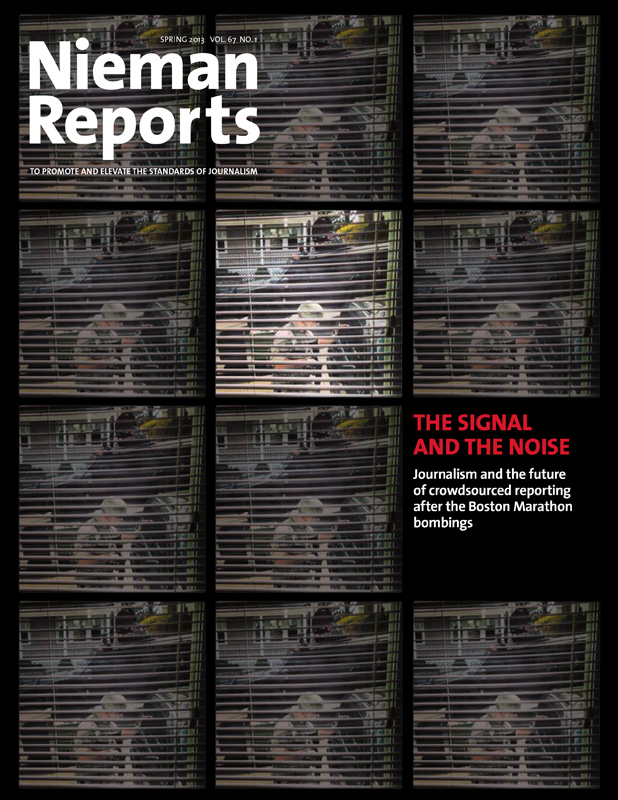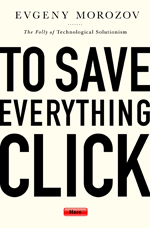
Photo by Paul Sakuma/The Associated Press
Evgeny Morozov has a knack for connecting seemingly unrelated technological advances and then describing a grave new world, where supercomputers and algorithms decide everything from the endings of novels to the likelihood of a shooting on a particular block. While his second book, “To Save Everything, Click Here,” is often cynical and sometimes frightening, it’s also oddly reassuring.
Many of us view emerging technologies as flawed but promising—for example, even as Twitter users spread misinformation about the suspects in the Boston Marathon bombings, plenty of tweets shared useful tips about street closings. Morozov, though, senses threats to politics, commerce and individual freedoms in “the Internet,” his shorthand for big data, Google, and the companies and governments that keep track of our every click.
This isn’t new: Morozov, a tech writer, expands on his first book, “The Net Delusion: The Dark Side of Internet Freedom,” which made a convincing argument that, rather than creating a new push for human rights, technology is often used to crack down on freedom fighters. He isn’t alone in his fears; computer scientist Jaron Lanier warns in “Who Owns the Future?” that “big computers” will take over unless we find a humanistic approach.
After years on the staff of four newspapers and a newsmagazine, I’m as cynical as anyone about editors who suddenly prattle on about the magic of reader-generated news or the vitality of videos. And yet Morozov oversimplifies. The decline of traditional publications started well before we knew the meaning of “url.” And Morozov overlooks positive developments brought about by the decentralization and disintermediation of media. An investigative story by ProPublica, for example, can instantly reach policymakers and other readers who might have missed it a decade ago if it ran only in a newspaper. Yes, The New York Times disbanded a team that examined climate change but at about the same time, InsideClimate News, a feisty nonprofit startup with a staff of seven and no newsroom, won a Pulitzer.
Morozov bemonans the rise of bespoke news—when each reader or viewer can tap into a customized lineup. He rightly warns of the pressures to come up with articles that bring readers directly to ads for shoes, kitchen appliances, or car insurance. More broadly, Morozov argues that the disappearance of common stories jeopardizes “opportunities for solidarity and informed debate.” But that was probably inevitable with the fracturing of politics. Someday, perhaps, the phenomenon of individualized news also could create a demand for coverage of Bolivia. Or Bosnia. Or Belarus, Morozov’s home country.
And that leads to the conundrum of Morozov: Even as he depicts worrisome trends, he shows that technology is capable of positive changes. Software called PredPol analyzes crime statistics, then tells police where to patrol. Although it’s too early to rate PredPol’s effectiveness, the city of Santa Cruz has reported a 30 percent decline in burglaries.
Books like this often end with a rousing call to arms. “To Save Everything, Click Here” is more modest. Morozov wants a national conversation about the impact of digital technologies. Let’s hope the media will do its part.
David L. Marcus, a 1996 Nieman Fellow, is the author, most recently, of “Acceptance: A Legendary Guidance Counselor Helps Seven Kids Find the Right Colleges—and Find Themselves” (Penguin Press).



